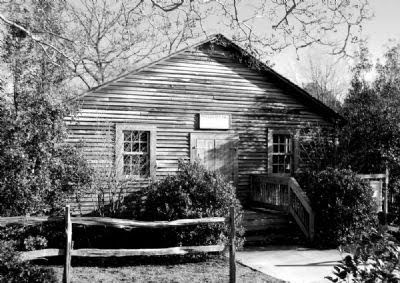
An essential part of Dr. JoAnne Lyon’s journey was the way that God awakened her heart to issues of biblical justice. As a child, God burdened her heart with the disparity she saw as part of the segregation of society into black and white. It didn’t seem right. As she says, “God was putting something in my heart about justice.”
She emphasizes that she didn’t exactly know what God’s plan was for her at that time. These were rather things that God was showing her. She reflected on them in her heart long before she knew what God wanted her to do with them. She just continued to say “yes” to God as he opened doors.
Let justice roll on like a river, righteousness like a never-failing stream!
Amos 5:24
Returning to the theme of blind spots, it was not her church that seemed to have the burden for justice at the time. Ironically, she saw this burden for biblical justice more in secular circles than her own church circles. Indeed, some Christians at the time rationalized away the cultural separation of black and white. Many in the church were either silent to the Civil Rights movement or actually resisted it.
It is easy to repeat these patterns. We can see the past with such clarity because hindsight is often 20/20. It is much harder to see ourselves in our own times. As one person has said, “If you want to know what you would have done during the Civil Rights movement, you’re doing it now.”

In the video, Dr. Lyon talks a little about the abolitionist origins of the Wesleyan Church. Those founders were radical abolitionists. They planted churches in the South and had the audacity to preach freedom for slaves in the two decades leading up to the Civil War. On the campus of Southern Wesleyan University today stands Freedom’s Hill Church, one of the churches planted in North Carolina by Adam Crooks, an early Wesleyan Methodist. You can still see the bullet holes where the church was shot at.
As she remarks, “Peacemaking can take your life.” One of the (white) members of that church was lynched and left for dead. However, those who lynched him didn’t have enough rope to hang all the people they wanted to hang that day, so they went back for it, thinking he was dead. But he wasn’t, and he lived to testify to God’s grace to him.
Again, it is easy for us to look back and think we would have taken the right position on these issues at the time. We do not realize how blinded so many Christians were to the injustice of slavery. There were Christian intellectuals at Princeton who defended it using Scripture. They made it sound like you were being unbiblical if you were against slavery. In a famous incident in Georgia in 1899, Christians flocked from church by train on Sunday to participate in the lynching of a black man, Samuel Wilkes.
Dr. Lyon gives some advice to those who feel the tug of the Holy Spirit in the direction of biblical justice:
- Find a group filled with the Holy Spirit who are doing the same thing.
- Constantly be in the Scriptures, searching and believing in the promises of God.
- Stay in touch and listen to the people.
Those who fight for biblical justice may sometimes find themselves feeling alone, even in the church. Evangelicals like Ron Sider faced strong opposition from the church even though they were fully orthodox in their theology and were ultimately just trying to help people. Dr. Lyon mentions how exhausted so many fighting for justice were. They were having breakdowns under the burden and struggle.
Still, a group of like-minded evangelicals found each other and met in Chicago in 1973 to draft the ”Chicago Declaration of Evangelical Social Concern.” God will always have others out there like you. Elijah felt very alone after an incredible victory (1 Kings 19:14-18), yet God showed him that there were hundreds of others like him out there. He just didn’t know them. When you feel alone pursuing a call God has laid on your heart, remember that there are others out there like you. Pray that the Lord will help you all find each other.
Dr. Lyon secondly urges those called to biblical justice to stay in the Scriptures. Sometimes the opposition can make you almost feel like you are outside the church. They may portray you as being unChristian or unbiblical.
Return to the Scriptures! As Jesus says of himself in John 5:39, the Scriptures themselves are what testify to this burden. We have taken a peak at just a few of those Scriptures above. Listening to the Bible will not lead you away from this calling. It will strengthen it, and Jesus himself witnesses strongly to it.
As you continue to listen to Dr. Lyon’s testimony, you will see that over and over again, God called her to mission as a result of seeing people. These people to her were not projects, but individuals that God loved. She shared her faith when God opened the door, but more crucially, her love and way of life was the most powerful witness of all.
The Lord makes firm the steps of the person who delights in him.
Psalm 37:23
She prayed with people when she had the opportunity. Most people will not turn down a prayer if it is sincerely offered from the heart. The result is that you will see the joy that happens when people’s lives are transformed. You will see the hope that God can bring through you.
Walk through the doors that God opens. Say “yes” to the Holy Spirit. And God will direct your steps. You will find your calling, perhaps even before you know you have found it.